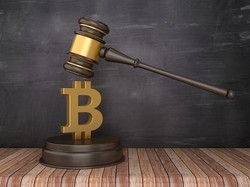Korean cryptocurrency exchanges are facing a major crisis due to the revised Act on Reporting and Using Specified Financial Transaction Information. On March 24th, 2021, the Act on Reporting and Using Specified Financial Transaction Information was revised, and the government imposed an obligation to report operations on all cryptocurrency exchanges so that they could continue their operations only after completing reporting the virtual asset industry. However, as a result of a consultation conducted by the Financial Services Commission, there were few exchanges that met the reporting requirements, and many cryptocurrency exchanges faced the crisis of closing down. The reason why the Act introduced such a strict reporting system is to prevent criminal activities such as money laundering activities and to establish a proper financial transaction order. However, due to strict regulations, voices of opposition are coming up from many cryptocurrency exchanges and banks. Let's find out what the revised Act on Reporting and Using Specified Financial Transaction Information is about and what crisis Korea's cryptocurrency exchanges are currently facing.
What Is the ‘Act on Reporting and Using Specified Financial Transaction Information’?

The ‘Act on Reporting and Using Specified Financial Transaction Information’ is an Act aimed at establishing a proper financial transaction order by preventing various criminal activities such as money laundering and financing public threats through cryptocurrency transactions. Strict standards for cryptocurrency exchanges were required to achieve this goal, and the Act on Reporting and Using Specified Financial Transaction Information was amended on March 24th, 2021. In response, the Act stipulates that virtual asset entrepreneurs must report their operations by September 24th, 2021. At the time of the revision, Eun Sung-soo, chairman of the Financial Services Commission, said, "There is currently not one out of more than 200 cryptocurrency exchanges that finished the registration under the Act on Reporting and Using Specified Financial Transaction Information. […] If the registration isn’t made, all the exchanges can be closed in September, so those who invest should know what's going on with the exchanges they're dealing with." The Act requires virtual asset entrepreneurs to first obtain Information Security Management System (ISMS) certification, second to have no financial criminal experience record, and third to issue real-name verification accounts. ISMS certification means that important information and assets such as corporate information, industry confidentiality, and personal information that organizations like companies possess, being guaranteed by nationally accredited certification authorities through evaluation. Under the Act, virtual asset entrepreneurs must meet the requirements for acceptance of a report, such as certifying ISMS. Entrepreneurs that meet the requirements must file their report by September 24th, 2021, and shall prepare for the fulfillment of their obligation to prevent money laundering after the acceptance of a report. However, with less than a month left before the deadline for reporting, and only one exchange "UPbeat" has finished their report, raising concerns that the other cryptocurrency exchanges would be closed in a row. Therefore, many people claimed for delaying the implementation of the Act.
Problems of the Revised Act
Absence of Exchanges that Meet the Requirements for Acceptance of a Report
The biggest problem with the exchange reporting system of the revised Act is that there are almost no exchanges that can meet the reporting requirements. The Financial Services Commission conducted on-site consultations on cryptocurrency exchanges for a month ending July 16th, 20 exchanges obtained ISMS certification and 33 cryptocurrency exchanges are still under examination. However, there was a problem. At the time of consulting, there were no virtual asset entrepreneurs that met all of the requirements for acceptance of a report. Though 19 out of 25 businesses met the requirements for ISMS certification, only UPbit, Bithumb, Coinone, and Korbit, which are considered the four major exchanges in Korea, met the requirements for real-name deposit and withdrawal accounts. This means that the overall preparation for implementing the Act was insufficient. However, in this situation, while admitting the fact that the reporting requirements have not been met, many cryptocurrency exchanges are expressing frustrations because they do not know the evaluation criteria. In fact, in a forum post on August 19th, the CEO of Probit, Do Hyun-soo, pointed out, "Consulting results show that all exchanges are insufficient to report as entrepreneurs, but we don't know what's insufficient because they don't explain the specific evaluation standards." Also, according to PAXNet news, one anonymous person concerned with small and medium-sized exchanges said, “The virtual asset market is still in its beginning stages, so if the standard applied to the stock market is applied to the virtual asset exchanges as well, it is natural that there are no exchanges that can be licensed for businesses.”
Is the Bank's Involvement Legitimate and Appropriate?
As mentioned earlier, the Act on Reporting and Using Specified Financial Transaction Information stipulates that for ISMS certification, no financial criminal record, and a real-name verification account are needed as a requirement for acceptance of a report for virtual asset entrepreneurs. The first requirement and the second requirement can be demonstrated by the Korea Internet & Security Agency (KISA) and the Korean National Police Agency respectively. Both KISA and the Korean National Police Agency are state institutions. But about the last requirement, the bank needs to participate in issuing a real-name verification account. The important point here is that the bank is a civilian enterprise. Article 7 of the Act on Reporting and Using Specified Financial Transaction Information stipulates that part of the examination can be delegated to the Financial Supervisory Service. Therefore, delegating authority to state institutions such as the Financial Supervisory Service has legal grounds. However, there is no stipulation that a bank, a civilian enterprise, can be entrusted with the examination of whether to issue a real-name account. To entrust examination to a civilian department, it shall comply with the stipulation saying, "notifying the necessary office handling guidelines and taking appropriate measures necessary for the processing is needed.” However, Korea Financial Intelligence Unit did not provide any office handling guidelines, nor did take any appropriate measures necessary for processing at all.
Eventually, entrusting the bank with the issuance of a real-name verification account under the Act is only a voluntary choice of a bank, not a legal act. In conclusion, some of the requirements for acceptance of a report are made by non-legally binding acts of banks, and the fairness of the law can be undermined. In this regard, Kim Hyung-joong, a professor at Korea University’s School of Cybersecurity pointed out, “We should ask whether banks can be free from all responsibility for future exchange accidents caused by the issuance of a real-name verification account.” Meanwhile, banks are also reluctant to issue real-name verification accounts. This is because if a criminal act occurs after issuing a real-name verification account, the bank will also have to bear some responsibility. In response, banks demanded an exemption clause that states that they will not be held responsible for future financial accidents if there is no negligence by the banks during the actual process of reports. But the financial authorities are rejecting the bank's demand. In fact, on July 1st, the chairman Eun Sung-soo said “I hope they don't think about it at all," regarding the bank's demand for the exemption clause.
Foreign Exchanges Have Begun to 'Cut Off’ Korea
While even large domestic exchanges like the so-called "four major exchanges" are also finding it difficult to comply with the Act, other foreign exchanges have begun to "cut off Korea." This is because it is impossible for foreign exchanges to comply with the Act where even large domestic exchanges have trouble. The Act stipulates that if foreign exchanges operate targeting Koreans, they should meet certain requirements and report them to local financial authorities. Since all the domestic exchanges cannot meet all the requirements, it is very unlikely that foreign exchanges will meet all requirements such as receiving ISMS certification, and issuing real-name verification accounts and report them. South Korean financial authorities have requested a total of 27 foreign exchanges that provide Korean language services to comply with the Act on Reporting and Using Specified Financial Transaction Information. Then, "Binance," which is considered the world's largest exchange, stopped their Korean language service and the Korean won trading pair since August 13th. The exchange "FTX" also deleted the Korean language service in the same month, followed by the exchange "Bitfront" withdrawing the Korean language service and the Korean credit card payment support service since September 25th.

Concerns are rising that the Korean market will shrink due to the "cut-off" activities of foreign exchanges. If foreign exchanges stop various services, virtual asset investors in Korea will have a significant reduction in the way they can choose to invest. Since most domestic exchanges do not meet the requirements, investors will only be able to choose a small number of domestic exchanges. In fact, Baek Hoon-jong, the chief operating officer of Sandbank said, “Unlike overseas countries where OTC (Over-the-counter Trade) or P2P (Peer to peer) trading platforms are activated, the domestic market is still concentrated on general centralized exchanges. […] If overseas exchanges are unavailable to be used, the domestic market could be hit harder than other countries.” Some also predict that the phenomenon of large exchanges not listing "K-Coins" will continue for a long time. This is because K-coin, a coin of a Korean company, is hard to avoid surveillance by financial authorities. In conclusion, domestic blockchain companies that hold their own virtual assets may face major difficulties in their business. This is where it could eventually lead to a contraction in the domestic virtual asset market.
Why Should the Revised Act Be Maintained?

The revised Act on Reporting and Using Specified Financial Transaction Information still has many problems where few cryptocurrency exchanges meet reporting standards, and it stipulates illegitimate and inappropriate involvement of banks. Also, many people are demanding compromises about it. However, there is also a clear view that the strict revised Act should be maintained. On August 19th, 2021, the financial authority announced that delaying the Act causes various side effects and it is desirable to maintain the current Act. First of all, Jeon Eun-joo, head of the Planning and Cooperation Team of the Korea Financial Intelligence Unit, said that sufficient time has already been given to report the business. As approximately one and a half years were granted including a grace period after the passage of the Act, there was plenty of time to prepare for the business report. The bank also expressed its position that 18 months is an adequate amount of time. Meanwhile, Park Chang-ok, head of the Legal Strategy and Promotion of Korea Federation of Banks pointed out that various side effects could occur when the Act is delayed. If the Act is delayed, the bank’s burden of verifying entrepreneurs will increase. In addition, exchanges that do not meet the appropriate requirements can extend their operations to the grace period, which can cause a lot of damage to users. In particular, as virtual currency is an asset with high-risk factors such as price variability and opacity, even more damage can be caused. In fact, Jeon Eun-joo, head of the team, claimed, "For the government, it is difficult to overlook the damage caused by the delay of the reporting period. […] We need to clear up this situation as originally planned.”
Regulations on virtual currency are inevitable as it is an asset with high-risk factors. In fact, however, there are no exchanges that meet the requirements for acceptance of a report stipulated in the Act and entrusting the issuance of real-name verification accounts resulted in no legal basis. Furthermore, the situation where even the so-called "four major exchanges" find it difficult to observe the Act, and many foreign exchanges have started to "cut off" Korea, such as withdrawing Korean language services. Continuing attention will be needed on whether the proposed amendments of the Act will be able to supplement the problems. Let's take continuous attention to how the Act on Reporting and Using Specified Financial Transaction Information will overcome this in the future.

